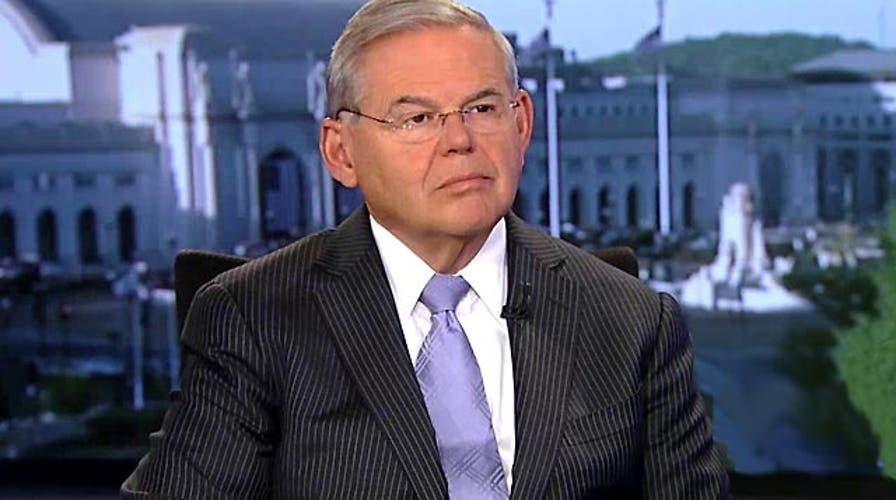Sen. Bob Menendez outlines objections to Iran nuclear deal
Insight from Democratic critic of the administration
New Jersey Sen. Bob Menendez said Tuesday that he opposes the Iran nuclear deal, becoming the second top Senate Democrat to reject President Obama’s plan.
Menendez, a senior member of the Senate Foreign Relations Committee, joins New York Democratic Sen. Chuck Schumer in rejecting the deal.
Menendez has been critical of the multi-nation deal, in which Iran would curb its nuclear program in exchange for getting billions of dollars in relief from economic sanctions that have been choking its economy.
His decision was expected, but still comes as a setback to Obama as he tries to garner enough votes in the Republican-controlled House and Senate to complete the deal.
Menendez said he opposed the measure because Iran has violated various U.N. Security Council resolutions while advancing its nuclear program.
He also said he is concerned that the agreement doesn't require Iran to dismantle its nuclear infrastructure.
"Let's remind ourselves of the stated purpose of our negotiations with Iran: Simply put, it was to dismantle all -- or significant parts -- of Iran's illicit nuclear infrastructure to ensure that it would not have nuclear weapons capability at any time. Not shrink its infrastructure," Menendez said at Seton Hall, in South Orange, N.J.
Menendez said his opposition is not an issue of whether he supports or opposes Obama, who has pledged to veto a congressional resolution of disapproval.
"This issue is much greater and graver than that," he said.
The Senate will taking up the resolution of disapproval as soon as it returns from recess on Sept. 8. The 60-day congressional review window runs out Sept. 17.
Republicans will need 60 votes to advance Senate Majority Leader Mitch McConnell’s resolution of disapproval. However, Obama is expected to veto the vote, which will result in the GOP needing a tougher 67 votes, or a two-thirds majority, to override the veto.
There are 54 Republican senators, but not all have made up their minds on the deal, though none has declared support.
Senate Democrats have 46 members in their caucus, including two Independents. Twenty three have said they support the deal, including Democratic Rhode Island Sens. Sheldon Whitehouse and Jake Reed, the ranking Democrat on the Senate Armed Services Committee. Each made their announcement Tuesday after Menendez.
If all Republicans vote for the resolution, they'd need six Democrats to join them for it to pass.
For the veto-proof majority, Republicans would need 13 Democrats to join them, which is possible but unlikely considering only Menendez and Schumer have defected so far.
The House is facing a similar situation.
Fox News' Kara Rowland and The Associated Press contributed to this report.





